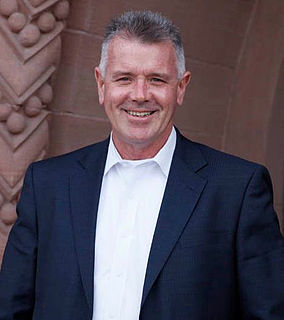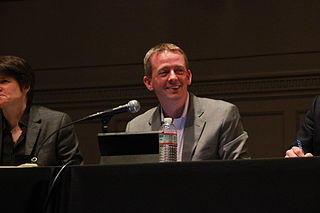A Quote by Fabrizio Moreira
Raising the minimum wage represents a substantial financial burden for employers, particularly start-ups, early stage companies, and family-owned businesses. In response, business owners would be forced to either lay off workers or raise prices to offset the rise in labor costs.
Quote Topics
Burden
Business
Business Owners
Businesses
Companies
Costs
Early
Either
Employers
Family
Financial
Financial Burden
Forced
Labor
Lay
Minimum
Minimum Wage
Off
Offset
Owned
Owners
Particularly
Prices
Raise
Raising
Represents
Response
Rise
Stage
Start
Start-Up
Substantial
Ups
Wage
Workers
Would
Would Be
Related Quotes
I was on the committee that helped raise the minimum wage here in Seattle. I introduced a statewide bill to raise the minimum wage in Washington state my first year in the state senate, and I really believe that raising the federal minimum wage, while not the answer to everything, addresses a lot of the issues at the very bottom.
I know firsthand that many employers who comply with other labor standards still hire the undocumented. Many businesses pay the minimum wage and have barely tolerable working conditions because there are sufficient undocumented workers willing to accept those terms. If we care about low-income workers in this country, we need to create pressure to improve their economic condition by reducing the supply of unauthorized workers.
Taking the politics out of setting the minimum wage provides fairness for workers and predictability for businesses. This legislation will also protect the most vulnerable workers and level the playing field for employers who play by the rules. These are the right steps to take; they will make Ontario a better place to work and run a business.
[E]conomic liberty and creative entrepreneurship are the basis of any solution to today's social and economic difficulties. Blaming business, setting wages, and attempting to run the economy by decree from Washington only exacerbates the problems. Consider the minimum wage. It seems so simple: Tell business to pay its workers more. But a hike in the minimum wage is essentially a tax, punishing precisely those companies that hire workers with the least skills.
A minimum-wage law, a law that prevents employers and employees from entering into mutually beneficial economic exchanges, is as far from a free market or free enterprise as one can get. That's why it causes so much damage and destruction, especially to black teenagers and others whose labor, for one reason or another, is valued by employers at less than the government-established minimum wage.
If I thought that raising the minimum wage was the best way to help people increase their pay, I would be all for it, but it isn't. If you raise the minimum wage, you're going to make people more expensive than a machine. And that means all this automation that's replacing jobs and people is only going to be accelerated.
































